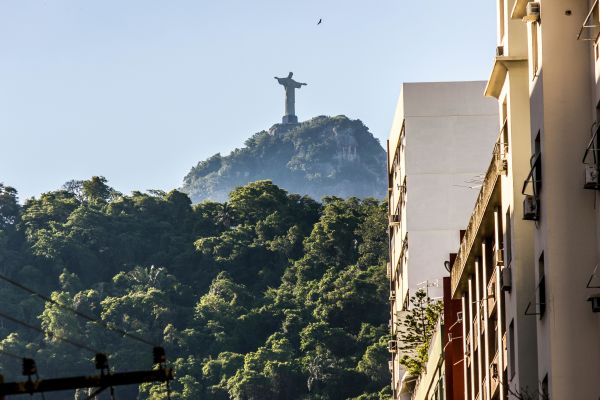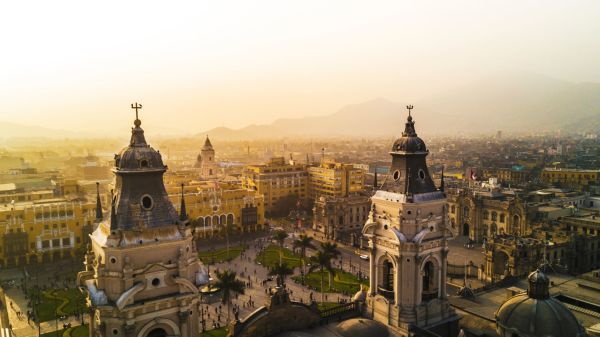Does Brazil require the yellow fever vaccine for travelers? What you should know

Brazil is a fascinating destination that combines dreamy beaches , lush rainforests , vibrant cities , and a culture as warm as its climate . But before you get swept away by the excitement of discovering Rio de Janeiro , venturing into the Amazon , or dancing to the rhythm of samba , it's important to know the health and vaccination requirements needed to enter the country and enjoy a smooth trip.
One of the main questions travelers ask is whether Brazil requires the yellow fever vaccine . The answer isn't as simple as "yes" or "no," and it depends on several factors, such as your country of origin , the destinations you'll be visiting within Brazil, and the epidemiological situation at the time of your trip.
Does Brazil require the yellow fever vaccine?
The World Health Organization (WHO) and the International Health Regulations (IHR) stipulate that some countries may require the yellow fever vaccine as an entry requirement for travelers from areas at risk of transmission. This includes not only those arriving directly from endemic countries , but also those who have transited through them.
In the case of Brazil , the yellow fever vaccine is not mandatory for all visitors. However, it is strongly recommended, especially for those planning to visit areas where the virus is circulating or during times when localized outbreaks may occur.
In situations of health emergency , the Brazilian government may establish temporary requirements and request the International Certificate of Vaccination or Prophylaxis (ICVP) as a condition for entry into certain regions.

Furthermore, Brazil does require proof of vaccination for travelers from countries where there is a risk of transmission , such as Argentina , Bolivia , Colombia , Ecuador , Peru , and Venezuela . In these cases, the vaccine must be administered at least 10 days before travel to ensure the development of protective antibodies . The certificate is valid for 10 years .
Where is it recommended to get vaccinated within Brazil?
Although not all of Brazil is considered a risk zone , there are many regions where yellow fever vaccination is recommended. These areas include:
- Northern Region : Roraima , Amapá , Amazonas , Pará , Acre , Rondônia .
- Central-West : Mato Grosso , Mato Grosso do Sul , Goiás .
- Northeast (partial) : west and south of Piauí , and much of Maranhão and Bahia .
- Southeast : São Paulo , Minas Gerais , Espírito Santo and Rio de Janeiro .
- South : Paraná , Santa Catarina and Rio Grande do Sul .

In contrast, there are other areas where vaccination is not recommended because they do not present a risk, such as eastern and northern Piauí , Ceará , Rio Grande do Norte , Paraíba , Pernambuco , Alagoas and Sergipe .
It is essential to consult with a health center or your family doctor beforehand, especially if you plan to travel through jungle or rural areas .
What is yellow fever and how can it be prevented?
Yellow fever is a serious viral disease transmitted by the bite of certain infected mosquitoes . It is not contagious from person to person or through objects, but it can trigger severe symptoms , including high fever , muscle pain , nausea , vomiting , bleeding , liver failure , and multiple organ damage . In its most aggressive form, it can even cause death .

Targeted vaccination remains the primary preventative measure . But in addition to vaccination, the following are recommended:
- Use of effective mosquito repellents .
- Light-colored, long-sleeved clothing .
- Mosquito nets on beds, cribs and windows, or the use of air conditioning .
- Eliminate containers with stagnant water to prevent mosquito breeding grounds .
If you experience symptoms such as fever , pain behind the eyes , skin rash , or bleeding , do not self-medicate . It is crucial to go to a health center immediately, as some common medications can worsen the condition .
Requirements for entering Brazil
In addition to health considerations , there are certain basic requirements to legally enter Brazil :
- Valid passport (minimum 6 months) or ID card/national identity card if traveling from a Mercosur country.
- Round trip ticket , or proof of departure from the country (airline reservation, bus ticket, etc.).
- International health insurance that covers emergencies and repatriation .
- Sufficient funds : Although there is no official mandatory amount, it is suggested to have at least $100 per day to cover accommodation , food and transportation .

Other vaccines recommended for travel to Brazil
Although not mandatory , several additional vaccines are recommended for those visiting Brazil , especially if the trip includes rural areas , outdoor activities , or contact with animals .
- Tetanus and diphtheria (Td) : Requires booster every 10 years.
- Hepatitis A and B : Useful for those who consume raw foods or travel to regions with poor sanitation .
- Rabies : Especially important for those who will be hiking , camping, or visiting areas with wildlife .
- Typhoid fever : Indicated if you are going to consume untreated water or food of dubious origin .
- Meningitis : Recommended for those who participate in mass events or share accommodation with many people .
These vaccines should ideally be administered at least four weeks before travel .
Final tips
Planning a trip to Brazil isn't just about packing light clothing and sunscreen . Health precautions are a fundamental part of the itinerary. Being properly informed and vaccinated not only protects you, but also the communities you visit.

Consult your doctor or international health centers at least six weeks before your trip. Check the updated requirements on official websites such as the WHO , the Brazilian consulate , or your airline .
Brazil awaits you with open arms , its vibrant colors , infectious music , and unparalleled nature . But, like any great journey, the adventure begins with preparation .
You might also be interested in: Bruges, a medieval fairy tale in Belgium




















